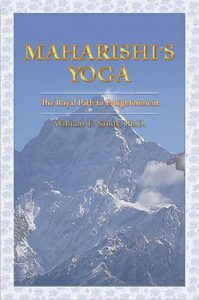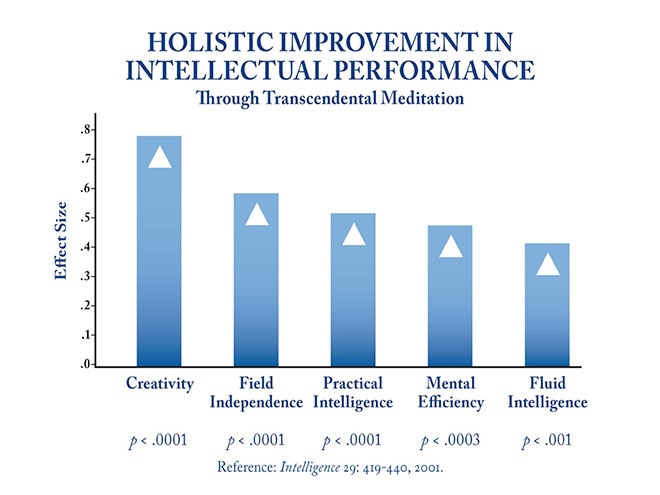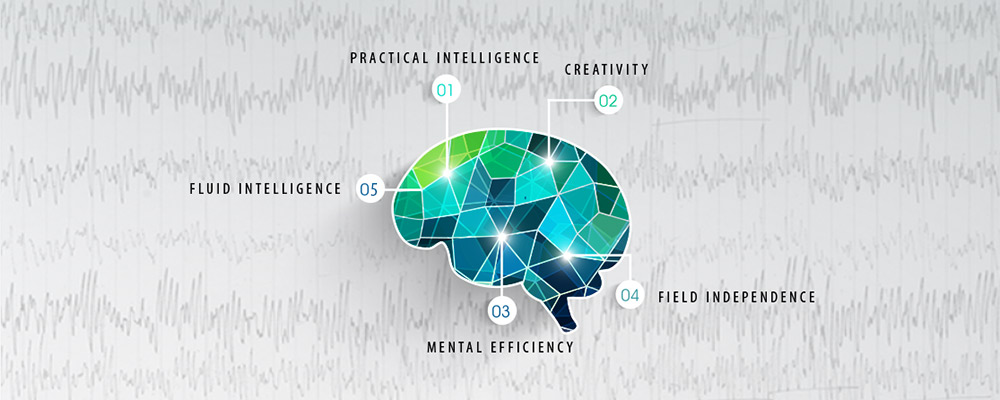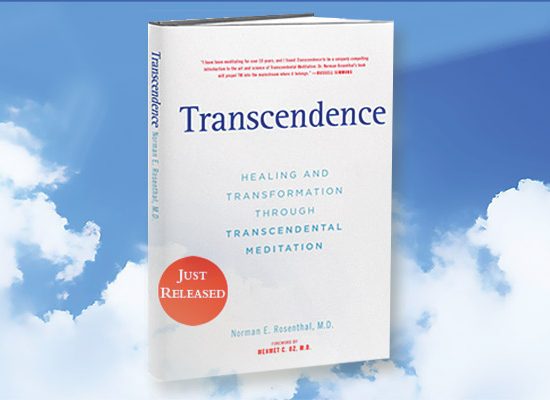An excerpt from Dr. William F. Sands’ book Maharishi’s Yoga: The Royal Path to Enlightenment, the far-reaching story of how TM Founder Maharishi Mahesh Yogi provided a fresh understanding of the ancient science of Yoga, restoring its deepest significance.
Brain researchers have identified five distinct types of intelligence: practical intelligence, creativity, field independence, mental efficiency, and fluid intelligence. Working together, these five modes of brain functioning support a productive, happy, and successful life. And here’s the good news: Regular practice of the TM technique develops all five kinds of intelligence.
 Global Brain Coherence during TM
Global Brain Coherence during TM
The brain is an extraordinarily sophisticated organ. It performs innumerable activities, often simultaneously, enabling us to love, remember, solve difficult problems, and plan for the future, while also controlling ongoing physiological functions that are essential to our life and well-being.
Among the many physiological changes that take place during Transcendental Meditation® (TM®) practice, perhaps the most intriguing is the increase in global, coherent alpha waves associated with the experience of transcendence. Brain wave coherence indicates a greater coordination between the brain’s parts, as well as more orderly functioning of the pre-frontal cortex. Significantly, as one continues with the practice, this coherence becomes increasingly apparent outside of meditation, and as a result practitioners become more integrated, resourceful, mentally flexible, and adaptable.
Measuring Intelligence
Years ago, IQ tests were the primary measure of intelligence. You were considered intelligent if you had a high IQ, whereas a low IQ was thought to indicate less intelligence. Over time, however, researchers realized that IQ measurement is inadequate—that a high IQ doesn’t necessarily predict success, and many with lower IQs are more productive, happy, and better able to fulfill their dreams.
It seems that IQ measures certain types of intelligence but doesn’t account for others. For example, it doesn’t measure creativity, emotional intelligence, or our ability to act appropriately and practically. Thus, even though studies have shown that the IQ of practitioners of the Transcendental Meditation technique increases even after adolescence1—a noteworthy finding in its own right—this does not by itself indicate holistic growth of intelligence.
Recent research, however, indicates that intelligence develops holistically from Transcendental Meditation practice. In one study, a scientist in Taiwan used seven standardized tests to measure an array of cognitive, emotional, and perceptual functions of 362 meditating students. Although the students had only been practicing the TM technique for six months, they showed improvements in five different measures: practical intelligence, creativity, field independence, mental efficiency, and fluid intelligence.2
Although the students had only been practicing TM for six months, they showed improvements in five different measures: practical intelligence, creativity, field independence, mental efficiency, and fluid intelligence.

Increased Creativity
These types of intelligence represent different ways in which we interact with the world. For example, we may need to come up with a new idea, or we may want to apply something we already know in a unique way. This kind of challenge requires us to use our creativity. Creativity is not the sole province of artists and musicians—everyone uses it to some degree—but we also have the potential for infinite creativity, which we can access.
In this study, the researcher found that the Chinese students did in fact grow in creativity as a result of their Transcendental Meditation practice. He used a test that measures whole-brain creativity, which requires a balanced use of intellect and feelings. The test results indicated a significant increase in the creativity of the meditating students compared to non-meditating controls.
Practical Intelligence
Sometimes we just need to be practical and know how to act appropriately—how to say or do the right thing at the right time. Psychologists call this practical intelligence. Interestingly, practical intelligence is generally a better predictor of success in both career and relationships than IQ.
In this study the researcher used a test that measures changes in mental outlook as well as practical abilities such as the capacity to work with others. It also predicts success in work and social relationships. The meditating group improved significantly in practical intelligence when compared to the non-meditating controls.
The meditating group improved significantly in practical intelligence when compared to the non-meditating controls.
Field Independence
Field-independent people are more prone to disregard irrelevant elements of a situation and focus upon what is useful—they are better able to comprehend more broadly and see the big picture while attending to details. Someone with less field independence, on the other hand, may tend to be distracted by what is irrelevant.
A field-independent person is also more likely to be receptive to other people’s opinions and perspectives and less likely to be unduly influenced by peers. This study documented significant growth in field independence among the meditating group as compared to the controls.
Mental Efficiency
An important aspect of the ability to interact with the environment is our mental efficiency. When the need arises, can we recall necessary information and quickly distinguish between what is relevant and irrelevant? Can we process large amounts of data and quickly come up with an effective solution? This is an extremely important part of holistic brain development because it measures the degree to which the different parts of the brain work together.
This study examined the rate of taking in and measuring simple stimulus information. The improvements among the meditating students when compared to controls indicate a growth of alertness and ability to focus, both of which are critical for learning.
In a separate study also measuring mental efficiency, after 40 days of TM practice, university students showed improved clustering in short-term memory and faster solution of arithmetic problems, indicating increased organization and efficiency of thinking.3
An additional study on cadets at a military academy in Brazil who were practicing the Transcendental Meditation technique also indicated greater mental efficiency by demonstrating improved cognitive performance, as measured by increased speed during a task of concentrated attention and improved memory of details.4
After 40 days of TM practice, university students showed improved clustering in short-term memory and faster solution of arithmetic problems, indicating increased organization and efficiency of thinking.
Fluid Intelligence
Fluid intelligence is the capacity to think logically and solve problems in new situations, independently of previously held knowledge. In other words, a person with a high level of fluid intelligence is better able to identify patterns and relationships underlying different situations in order to logically solve problems. The study on the Taiwanese students found significant improvements in fluid intelligence among the Transcendental Meditation practitioners.

Dr. William F. Sands
In theory, growth of intelligence should translate into greater success, whether academic, professional, or in our everyday life.
The brain is not the only part of the human physiology to benefit. Indeed, Transcendental Meditation practice profoundly affects every part of the physiology, leading to the reduction of stress and improvements in health.
Dr. William F. Sands is professor of Maharishi Vedic Science at Maharishi University of Management. His book Maharishi’s Yoga: The Royal Path to Enlightenment tells the fascinating story of how Maharishi Mahesh Yogi provided a unique and fresh understanding of the ancient science of Yoga, restoring its deepest significance. To many, Yoga is an ancient form of exercise, but the benefits of Yoga go far beyond health.
Order your copy of Maharishi’s Yoga: The Royal Path to Enlightenment ►
References
- R.W. Cranson, D.W. Orme-Johnson, M.C. Dillbeck, C.H. Jones, C.N. Alexander, and J. Gackenbach, “Transcendental Meditation and Improved Performance on Intelligence-Related Measures: A Longitudinal Study,” Journal of Personality and Individual Differences 12 (1991): 1105–16.
- K.T. So and D.W. Orme-Johnson, “Three Randomized Experiments on the Holistic Longitudinal Effects of the Transcendental Meditation Technique on Cognition,” Intelligence 2001 29(5): 419–440.
- D.E. Miskiman, “The Effect of the Transcendental Meditation program on the organization of thinking and recall (secondary organization,” In D.W. Orme-Johnson and J.T. Farrow, eds., Scientific Research on the Transcendental Meditation Program: Collected Papers, Vol. 1 (Rheinweiler, W. Germany: MERU Press, 1977), 385–92.
- M. De Fatima Campos Belham, “Introduction in a Military Academy the Transcendental Meditation Program for Prevention of Stress,” in M. Dillbeck, ed., Scientific Research on Maharishi’s Transcendental Meditation and TM-Sidhi Program: Collected Papers, Vol. 6, (printed in China for Maharishi Vedic University, Vlodrop, The Netherlands, 2011), 4068–72.






[…] https://enjoytmnews.org/there-are-5-kinds-of-intelligence-heres-how-to-activate-them-all/#.WrZOIJ9-U… […]
Really good article! Where can I get book and videos in Spanish?
Thanks Claudia, on behalf of Dr. Sands. His book has not been translated into Spanish, but there are others: La Ciencia del Ser y El Arte de Vivir (Spanish Edition) by Maharishi Mahesh Yogi is out of print but available online, and Meditacion trascendental de Maharishi Mahesh Yogi / Maharishi Mahesh Yogi T. M. Transcendental Meditation (Superacion Personal / Personal Growth) (Spanish Edition) by Robert Roth is also available. There also some wonderful videos of Father Mejia on TM, such as https://www.youtube.com/watch?v=9UYBmKR3UyM, and on Love and Transcendence https://www.youtube.com/watch?v=lKLjmEGT_Jk, to mention just two. I’m sure you can find other books and videos online. Good luck and enjoy!
Great articles
Thank you, on behalf of Dr. Sands and the Enjoy TM News team!